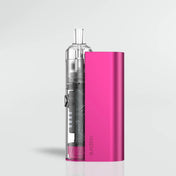Society at large has become more environmentally conscious in recent years than at any point in human history. We understand more about the impact our actions have on our environment and indeed on the animals which inhabit it, including ourselves.
Much in the same way we at EDGE have officiated our own green efforts as a business with the introduction of our Corporate Social Responsibility (CSR) policy, industries around the world are beginning to take more responsibility for their ecological footprint. Those operating in countries forming a part of the G7 environmental summit (UK, USA, Canada, Japan, Germany, France and Italy, plus the EU), face greater levels of expectation from their consumers and hosting governments.
This has been most recently evidenced by French leaders, who have made headlines by putting forward a new stipulation that seeks to enforce the inclusion of environmentally and socially conscious messaging within advertisements for motor vehicles.
What are the New Rules for Car Manufacturers?
From March 1st 2022, commercial advertisements for motor vehicles will be required to tell people to walk, cycle, or take public transport wherever possible. The legislation dictates that each advertisement must include one of three approved statements, all suggesting ways in which consumers might reduce their reliance on cars.
The three statements translated read: “For short journeys, walk or cycle”, “Think about carpooling”, and “For day-to-day use, take public transport”. All advertisements including print, online or broadcast must feature one of these messages. They must be clearly visible on-screen, or spoken aloud at the end of the advert if given via radio broadcast. In certain circumstances, the hashtag #SeDéplacerMoinsPolluer, which translates to #MoveWithoutPollution, must also be included.
Fines for companies who fail to comply with these new rules can face substantial fines, with the most severe currently standing at €50,000.
Why has France Introduced New Rules for Vehicle Advertisements?
Despite being a famous producer of motor vehicles like Renault, Citroen and Peugeot, France has pledged to end the sale of diesel and petrol powered cars by 2040. This is no different to other countries, most of which now have active plans to switch to electric or alternatively powered vehicles by the 2030-40 mark.
The new rules we see imposed on advertisements this year are the latest step towards achieving that goal. Barbara Pompili, minister for the Ecological Transition of France has said the legislation was part of a wider effort to change the mindset of people and make them more accountable for the way they travel. Going on to Tweet: "Decarbonizing transport is not just switching to electric vehicles. It also means using, when possible, public transport or cycling".
Transport emissions account for one quarter of the EU’s greenhouse gas production. In France specifically 15% of greenhouse emissions are produced by private vehicles. This has already led the French government to create low-emission zones in several cities where the population is greater than 150,000. By 2025 these cities will also have speed restrictions for applicable vehicles, and a total ban for those with high emissions.
This latest ecological step follows France’s previous ban on short flights, as well as the introduction of more vegetarian meals into schools, and enforcing waste free packaging. Much like with our own EDGE environmental initiatives, the nation is doubling down on ecological consciousness. While acknowledging the new messaging won't directly contribute to the lowering of carbon emissions, it is hoped that it will help change the mindset of consumers. Functioning in the same way warnings on products like vapes, cigarettes or alcohol do to influence consumer habits.
The EDGE Perspective
While only a minor change initially, the French approach to steadily influencing peoples' mindsets has the potential to be the beginning of a major change in daily life around the world. We are all largely aware in the UK of the global shift towards electronic vehicles, and it would not be an extreme thought to consider that we may see similar messaging featured in domestic advertisements before long.
There are many people who still feel that deterrent messaging is ineffective, as evidenced by some of the reactions to proposed UK legislature which would see smoking kills printed on individual cigarettes. However, in this instance we feel that it marks an important step towards enforcing a greater social responsibility in big corporations, especially when they are part of a historically ecologically damaging industry like vehicle manufacture and sale.
How would such messaging impact your buying habits? Would warnings and advice have the same impact on your car buying decisions as it has for many peoples’ consumption of tobacco, e-liquid or alcohol? Time will tell how much success can be measured from France’s efforts, but it may not be long before we see the same tactics in Britain.



